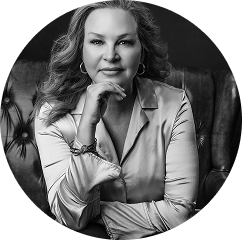
1. Understand Your Budget & Financing Options
Before you start browsing listings, figure out how much home you can afford. Victoria’s average home prices are among the highest in Canada, so being realistic is key.What to Do:
- Use mortgage calculators to estimate monthly payments.
- Consider your down payment: In Canada, the minimum is 5% (for homes under $500,000) but ideally 20% to avoid CMHC mortgage insurance.
- Factor in property taxes, utilities, and strata fees (for condos).
- Get pre-approved by a mortgage broker or lender.
2. Get Pre-Approved for a Mortgage
A mortgage pre-approval not only gives you a price range but also shows sellers you’re serious.Key Documents:
- Proof of income (pay stubs, job letter)
- Recent tax returns
- Credit report
- Bank statements
3. Find a Local Real Estate Agent You Trust
The Victoria market has unique neighborhoods—from historic James Bay to growing areas like Langford. A knowledgeable local REALTOR® can help guide you based on your needs and budget.Your agent will:
- Recommend neighborhoods
- Set up custom MLS® searches
- Arrange showings
- Prepare offers
- Negotiate on your behalf
4. Start the House Hunt (Be Ready to Act Fast!)
Once you’re pre-approved, start viewing properties that match your criteria. Victoria’s market moves fast—homes can sell in days.What to Watch For:
- Age of the home (Victoria has many older houses—check the roof, plumbing, and foundation)
- Strata rules and fees (if buying a condo or townhouse)
- Nearby amenities (transit, schools, grocery stores, parks)
5. Make an Offer & Negotiate
Your agent will help you write a competitive offer based on market conditions. Offers in Victoria often include:- Price
- Deposit amount (typically 5% of the purchase price)
- Subjects (e.g. financing, home inspection, strata review)
- Proposed completion and possession datesTip: Always include a home inspection as a subject—it can uncover costly issues, especially in older homes.
6. Do Your Due Diligence
After your offer is accepted, you’ll enter the subject removal phase—typically 5–10 business days.Tasks include:
- Finalizing mortgage approval
- Conducting a home inspection
- Reviewing strata documents (if applicable)
- Getting property insurance quotes
7. Hire a Real Estate Lawyer or Notary
A lawyer or notary will complete the legal transfer of the home, register the title, and ensure funds are properly transferred.You’ll meet with them closer to the completion date to sign paperwork.8. Prepare for Closing Day
On completion day, your lawyer will transfer funds, and the property becomes legally yours. Possession usually happens 1–3 days later.Before moving in:
- Set up utilities (BC Hydro, FortisBC, internet, etc.)
- Change your address with Canada Post
- Purchase home insurance
- Do a walk-through to confirm the property is in agreed-upon condition
Final Thoughts
Buying your first home in Victoria, BC is an exciting (and sometimes overwhelming) experience. But with the right preparation, support, and understanding of the local market, you can confidently find a home that fits your lifestyle and financial goals.Need personalized help buying your first home in Victoria or Southern Vancouver Island?Contact Janine Thomson today for expert real estate advice, a custom home search, and insider tips on becoming a successful first-time buyer in BC. 778-678-5466
Disclaimer:
The information provided in these posts are for general purposes only. It is not written nor intended to provide legal advice or opinions of any kind. No one should act upon, refrain from acting, based solely upon the materials provided & recorded, or through any hypertext links and other general information, without first seeking appropriate legal and/or other professional advice.

